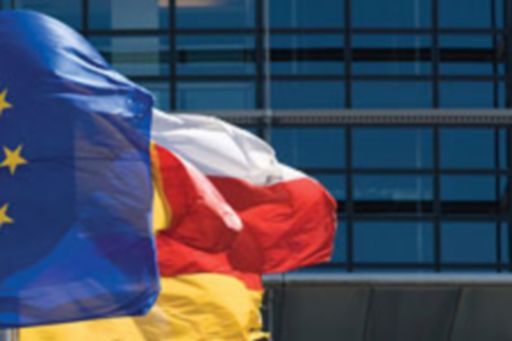Euro Tax Flash from KPMG's EU Tax Centre
Euro Tax Flash from KPMG's EU Tax Centre
On July 5, 2016 the Advocate General (AG) Mengozzi of the Court of Justice of the European Union (CJEU) issued his opinion in the joined cases Commission v Aer Lingus (C-164/15 P) and Commission v Ryanair (C-165/15 P).
Highlights

>> Go back to Euro Tax Flash homepage
AG’s opinion in joined State aid cases against Aer Lingus and Ryanair
State aid — Irish tax on airline passengers — Differentiated air travel tax rates
On July 5, 2016 the Advocate General (AG) Mengozzi of the Court of Justice of the European Union (CJEU) issued his opinion in the joined cases Commission v Aer Lingus (C-164/15 P) and Commission v Ryanair (C-165/15 P). These cases concern the Irish air travel tax (ATT), an excise duty on air passenger transport, which is applied at different rates depending on the distance between the departure and the arrival airports, and its compatibility with State aid rules. The AG concluded that the ATT constitutes State aid and that the amount of aid to be recovered should be computed as the difference between the EUR 10 tax applied normally and the EUR 2 reduced rate for flights to airports located less than 300 kilometers from Dublin airport.
Background
The ATT is an excise duty on air passenger transport which airline companies are liable to pay in respect of passengers departing on an aircraft from an airport located in Ireland. Between 2009 and 2011, the tax was levied on the basis of the distance between the departure airport and the arrival airport, at the rate of (1) EUR 2 for a flight to a destination located less than 300 kilometers from Dublin airport and (2) EUR 10 in all other cases. In July 2011, the European Commission issued a negative decision (2013/199/EU) in which it concluded that the application of a reduced ATT rate for certain flights constituted illegal State aid and ordered its recovery from the beneficiaries.
Following appeals brought by Aer Lingus (T-473/12) and Ryanair (T-500/12), the General Court upheld in July 2015 the Commission’s findings on the State aid qualification, but partially annulled the Commission’s decision to the extent that it ordered the recovery of an amount which had been erroneously computed. In its judgment, the General Court concluded that, as the ATT is an excise duty designed to be passed on to passengers, the advantage deriving from the reduced rate may also be passed on to passengers in full or in part. Consequently, the advantage actually obtained by the airlines would not necessarily be the difference between the two rates − as computed by the Commission − but in the option open to them to offer their customers more attractive prices, thereby increasing their turnover.
The appeals brought by the Commission before the CJEU raise the question whether the Commission, in calculating the amount of aid to be recovered, is required to take into account the possibility of airlines passing on to their customers the economic advantage derived from the aid.
The AG’s opinion
According to the AG, if the aid takes the form of a tax advantage, the beneficiaries have to refund a sum corresponding to the tax payable under the tax legislation that would have applied in the absence of the unlawful aid. Referring to the CJEU’s consistent case law in this respect, the AG noted that the purpose of recovery is not to eliminate the benefit actually gained as a result of the aid but the competitive advantage initially acquired. Therefore, the recovery has to be limited, in principle, to the direct benefit obtained from the aid and cannot be extended to any indirect benefit (or potential disadvantage) that may have accrued as a result. The AG then assessed whether the particular circumstances of the cases under review justified a departure from the above criteria. He finally concluded that the recovery of fiscal aid in the form of the application of a tax rate below the normal rate should be based on the difference between the normal rate and the rate actually applied. This does not require a complex assessment of an economic nature.
EU Tax Centre comment
It remains to be seen whether the CJEU will agree with the AG’s interpretation of the criteria normally applied for the purposes of quantifying aid granted in the form of a reduced tax rate. In particular, the CJEU decision may shed light on how and to what extent the “passing-on” defense may be taken into account when computing the amount of aid to be recovered.
Should you have any queries, please do not hesitate to contact KPMG’s EU Tax Centre, or, as appropriate, your local KPMG tax advisor.
Robert van der Jagt
Chairman, KPMG’s EU Tax Centre and
Partner, Meijburg & Co
Barry Larking
Director EU Tax Services, KPMG’s EU Tax Centre
Director, Meijburg & Co
